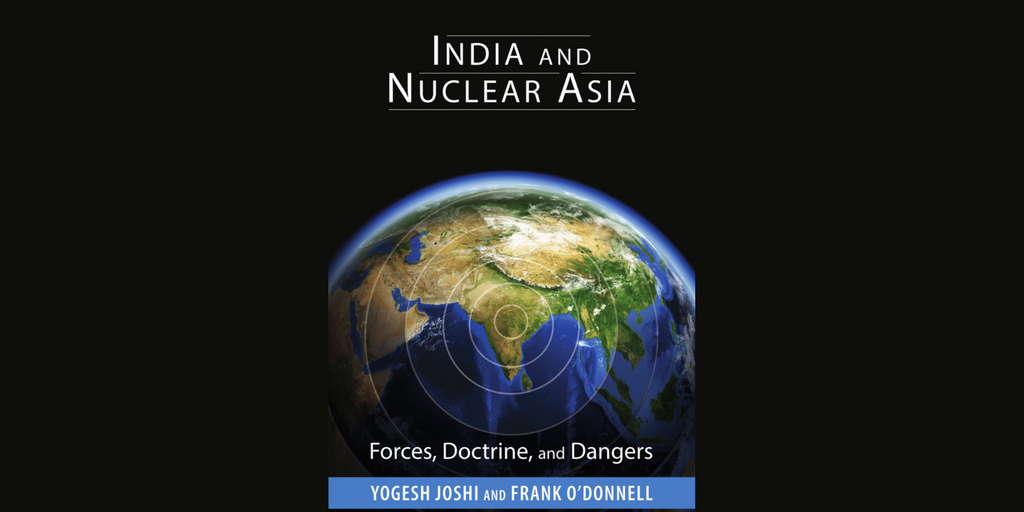By Yogesh Joshi and Frank O’Donnell
India’s nuclear profile, doctrine, and practices have evolved rapidly since the country’s nuclear breakout in 1998. However, the outside world’s understanding of India’s doctrinal debates, forward-looking strategy, and technical developments are still two decades behind the present. India and Nuclear Asia will fill that gap in our knowledge by focusing on the post-1998 evolution of Indian nuclear thought, its arsenal, the triangular rivalry with Pakistan and China, and New Delhi’s nonproliferation policy approaches. Yogesh Joshi and Frank O’Donnell show how India’s nuclear trajectory has evolved in response to domestic, regional, and global drivers.
The authors argue that emerging trends in all three states are elevating risks of regional inadvertent and accidental escalation. These include the forthcoming launch of naval nuclear forces within an environment of contested maritime boundaries; the growing employment of dual-use delivery vehicles; and the emerging preferences of all three states to employ missiles early in a conflict. These dangers are amplified by the near-absence of substantive nuclear dialogue between these states, and the growing ambiguity of regional strategic intentions.
Based on primary-source research and interviews, this book will be important reading for scholars and students of nuclear deterrence and India’s international relations, as well as for military, defense contractor, and policy audiences both within and outside South Asia.
The book can be purchased here.
Reviews of the Book
“Joshi and O’Donnell offer a thoughtful corrective to nuclear optimists. In the first analysis of its kind, they analyze India’s nuclear weapons strategy within an interactive framework with those of China and Pakistan, highlighting growing risks and exploring ways of mitigating them.”
-Rajesh Basrur, Professor of International Relations, Coordinator, South Asia Programme, S. Rajaratnam School of International Studies (RSIS), Nanyang Technological University
“In locating India’s nuclear strategy in the triangular dynamic with Pakistan and China, Joshi and O’Donnell open up an under-explored terrain in the discourse on nuclear deterrence. Their focus on the dangers of accidental and inadvertent dangers of escalation is of special importance amidst India’s deteriorating relations with both Pakistan and China.”
-C. Raja Mohan, Director, Carnegie India
“Two decades after the 1998 Indian nuclear tests, while India’s nuclear capabilities as well as its standing in the global nuclear regime have seen dramatic transformation, the India-China-Pakistan equation has undergone tectonic change with the entry of full-spectrum deterrence, and dual-use and naval platforms into the nuclear calculus. With the credibility of NFU in doubt, and absent a triangular strategic-dialogue, Joshi and O’Donnell deserve high praise for the timely focus they bring on the dangers inherent in this intensely opaque equation and for the diligence with which they explore its implications; including nightmare scenarios of inadvertent and accidental escalation.”
–Adm. Arun Prakash (Retd.), Former Chairman, Chiefs of Staff Committee, and former Indian Navy Chief

